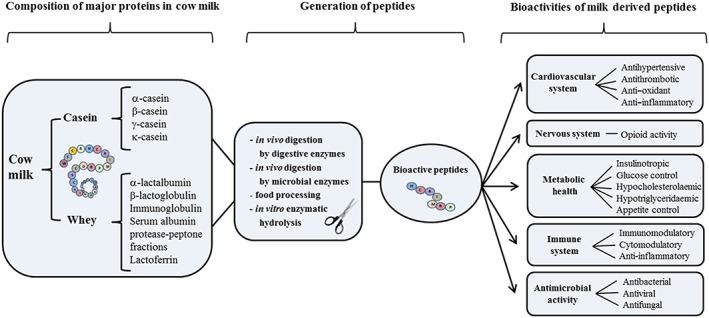Figure 1.

Schematic illustrating generation of milk‐derived bioactive peptides and their physiological functionalities. Milk‐derived bioactive peptides can be encrypted in both casein (α‐, β‐, γ‐ and κ‐casein) and whey proteins (β‐lactoglobulin, α‐lactalbumin, serum albumin, immunoglobulins, lactoferrin, protease‐peptone fractions). Generation of peptides may be induced in several ways, by enzymatic hydrolysis or microbial fermentation, in vivo during digestion by digestive enzymes, like trypsin, and by gut microbial enzymes, during food processing, by ripening or by in vitro hydrolysis using isolated enzymes. Numerous health promoting effects have been attributed to milk derived bioactive peptides released from dairy proteins by enzymatic proteolysis, including antithrombotic, antihypertensive, anti‐inflammatory, anti‐oxidative, antimicrobial and anti‐obesity
